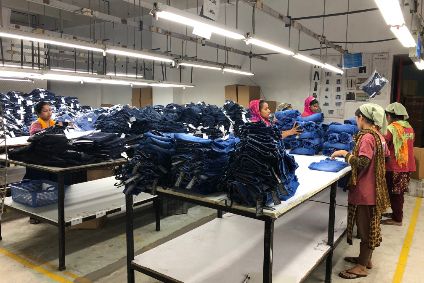
The garment industry has suffered the biggest economic hit during the Covid-19 pandemic, according to a new report, with supply chain disruption the top challenge.
According to a report by responsible sourcing platform Sedex – ‘Covid-19 impacts on businesses’ – 68% of garment members surveyed said their revenue has decreased “significantly” or “critically”. Other sectors surveyed included transport and logistics, chemicals, retail, pharmaceutical, construction, cleaning, wholesale, and fishing.
The report, which included 469 garment supplier respondents across 51 countries, with most in China, India, Bangladesh, and Turkey, found only 38% versus 55% on average for the survey, report that customers are being supportive during the pandemic.
Countries such as India (88%) and Bangladesh (77%) have been particularly impacted. Only 10% of respondents have seen an increase in, or steady revenue.
But with many factories struggling to stay afloat, closures and reduced work has had a devastating impact on jobs and income for the majority of workers in the garment and textile sectors, the report has found.
Of those with more labour than work (56%), the most common option for managing this was reducing the number of shifts per worker (46% implementing this option) with 31% of suppliers reducing headcount. Around 25% of businesses will temporarily close and 21% will stop workers coming into work during this period.

US Tariffs are shifting - will you react or anticipate?
Don’t let policy changes catch you off guard. Stay proactive with real-time data and expert analysis.
By GlobalData“This makes for particularly grim reading, in an industry where workers earn extremely low incomes,” the report notes. “With little to no margin for savings, many garment and footwear workers look set to face extreme poverty. Timely collaboration between retailers and governments is critical for managing the impacts of Covid-19 on the millions of people affected.”
Of those experiencing labour shortage (30%), companies are taking proactive steps to try and resolve the situation, with the recruitment of more workers (42%) and use of contract labour (27%) popular options. With almost 70% of those experiencing labour shortage looking for new workers, the likelihood of poor recruitment practices is exacerbated in times of crisis and hiring child or forced labour may increase. Negotiation with buyers on extending timelines so that orders can be met with existing workers was a key option for 40% of respondents.
“Sedex strongly advises buyer organisations to allow for flexibility, and additionally provide fair prices. The data provides a stark picture of incredibly challenging conditions for suppliers, and a much lower level of support from their customers than in any other industry. Buyers must pay attention to these figures and realise that they must improve their practices urgently to minimise adverse impacts on human rights and ensure the functioning supply chains essential to business and sectoral recovery,” the report explained.
On a more positive note, more respondents are reporting positive actions taken around health measures. For example, 78% have trained employees and 72% sites have implemented physical distancing measures. Equally, there have been some positive examples with 15% of respondents increasing access to health insurance for workers. However, 10% of respondents said that health measures only applied to permanently hired workers.
“While it is clear that actions have been taken, much more needs to be done to ensure worker safety. For workers with low wages and little job security (common characteristics of garment and footwear jobs), it is unaffordable to stay away from work due to health concerns.”
In the short term, the report suggests much more needs to be done to protect workers while at work from the health impacts of Covid-19 and protect those out of work from the financial impacts of unemployment.
When asked about the measures that would be most helpful actions from buyers to support suppliers, respondents stated: Avoiding cancelling contracts (67%), better payment terms (56%), improved forecasting and planning (49%), longer production timelines and no late delivery fees during this period (48%). Around 31% of suppliers also requested delays to auditing.
Click here to view the full report.




